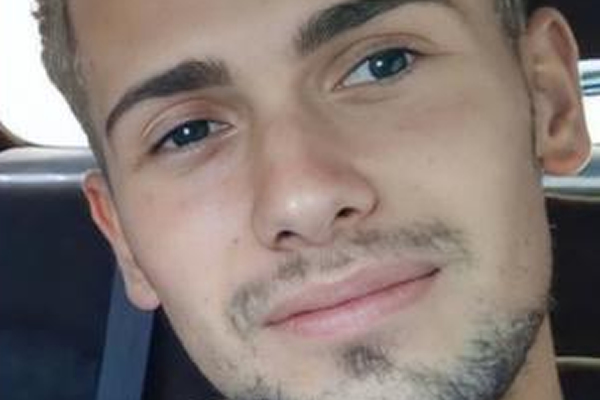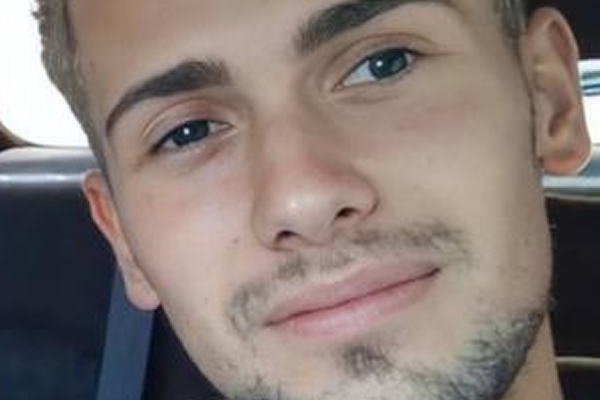
A human rights activist in Uzbekistan says LGBTQ people in their country continue to live in fear.
“Members of the LGBT community continue to be intimidated,” the human rights activist told the Washington Blade this week. “Activism and protection of the rights of LGBT representatives is almost impossible in the country.”
“There are no mechanisms that would somehow help people who are already in a complex psycho-emotional state,” added the human rights activist. “It is not possible to ask for help if you suffered on the basis of your sexual orientation; either from law enforcement agencies, doctors, psychologists or other structures that should provide this assistance.”
Uzbekistan is among the dozens of countries in which consensual same-sex sexual relations remain criminalized.
Human Rights Watch; the Council for Global Equality; the Eurasian Coalition on Health, Rights, Gender and Sexual Diversity; Freedom Now; Human Dignity Trust; the Human Rights Campaign; ILGA-Europe; the International Partnership for Human Rights and the Lesbian and Gay Federation in Germany in an Aug. 5 press release noted Uzbek authorities between 2017 and this year have subjected at least six men to so-called anal exams to prove they engaged in consensual same-sex sexual relations. The groups urged President Shavkat Mirziyoyev to immediately ban this practice.
“Forced anal examinations, and their use in seeking convictions for consensual same-sex conduct, are an appalling violation of basic rights that diminishes Uzbekistan’s efforts to make its poor human rights record a thing of the past,” said Human Rights Watch Associate LGBT Rights Director Neela Ghoshal in the press release. “The Uzbek government has been vocal about its intent to make human rights reforms, yet persists in using a discredited, abusive procedure that amounts to torture.”
The human rights activist spoke with the Blade days after Human Rights Watch and the other groups urged the Uzbek government to ban anal exams. The Blade on Thursday reached out to the Uzbek government, the Uzbek Embassy in D.C. and Uzbek Ambassador to the U.S. Javlon Vakhabov for comment.
This is Michael Lavers from the @WashBlade in the U.S. Does @govuz have any comment on the Human Rights Watch report on forced anal testing in homosexuality prosecutions? https://t.co/at7uEKdQBm @Dunyo_IA @UZEmbassyDC @JavlonVakhabov @usembtashkent
— Michael K. Lavers (He/Él) (@mklavers81) August 12, 2021
Uzbekistan is a former Soviet republic in Central Asia that borders Kazakhstan, Kyrgyzstan, Tajikistan, Turkmenistan and Afghanistan. Mirziyoyev has been Uzbekistan’s president since 2016.
The human rights activist — who asked the Blade not to publish their name — said Mirziyoyev promised “radical changes in all areas, especially in the field of human rights.”
“The entire world community, like the entire population of Uzbekistan, expected global changes in these areas, but almost five years have passed since he has been in power and much that was promised was simply forgotten or rejected under various pretexts,” said the human rights activist. “During all five years of government as president in the field of LGBT rights, nothing was done except aggravating the situation and worsening the situation of the LGBT community in Uzbekistan.”
The human rights activist noted Article 120 of the Uzbek penal code “is directed primarily against men, but the presence of an article in society is perceived as a ban on the entire LGBT community.” They also said efforts to decriminalize homosexuality in Uzbekistan have been “rejected, citing the thinking of civil society.”
The human rights activist told the Blade that prominent politicians and religious officials in their country publicly say LGBTQ people should undergo treatment, lose their citizenship and be destroyed.
A new criminal code that Uzbek lawmakers approved in February contains a provision that addresses “crimes against morals, youth and family.” The human rights activist with whom the Blade spoke sarcastically said “it turns out that the LGBT community in the country is the culprit of problems in families, in young people.”
“Representatives of the LGBT community in Uzbekistan have no protection and no rights,” said the human rights activist. “In addition, the lack of support from civil society, the imposition of a negative image of the LGBT community on people deprive them of the support of civil society, because people have been introduced to the idea that if you are willing to help the LGBT community, then you are necessarily part of them and should be subject to punishment.”
“Open homophobia and unleashed hands of law enforcement agencies allow the use of any methods of pressure and torture on people who are charged under Article 120, because no one will help in this situation,” added the human rights activist.
The human rights activist told the Blade that they welcome the call for Mirziyoyev to ban anal tests in Uzbekistan. The human rights activist added they are hopeful the U.S. and European Union can potentially spur Mirziyoyev’s government to do more to protect LGBTQ Uzbeks.
“The hope of the LGBT community of Uzbekistan is connected precisely with the possibility of influence from the government of America and the European Union on this issue,” said the human rights activist, while adding the pandemic has forced the U.S. and European countries to shift their priorities.
The human rights activist noted Uzbekistan is a member of the U.N. Human Rights Council and “has undertaken to promote and protect human rights and to adopt a number of legislative, institutional and administrative measures to fulfill its international human rights obligations, and has undertaken to protect, promote and uphold universal human rights and fundamental freedoms for all.”
The human rights activist also pointed out the EU does not impose tariffs on goods it imports from Uzbekistan.
“The EU made concessions to Uzbekistan in this matter when it gave it the status of its partner,” they noted. “But at the same time Uzbekistan is not confused in fulfilling its obligations.”








